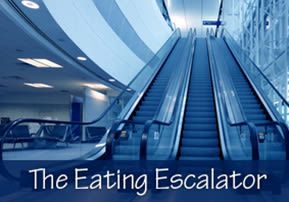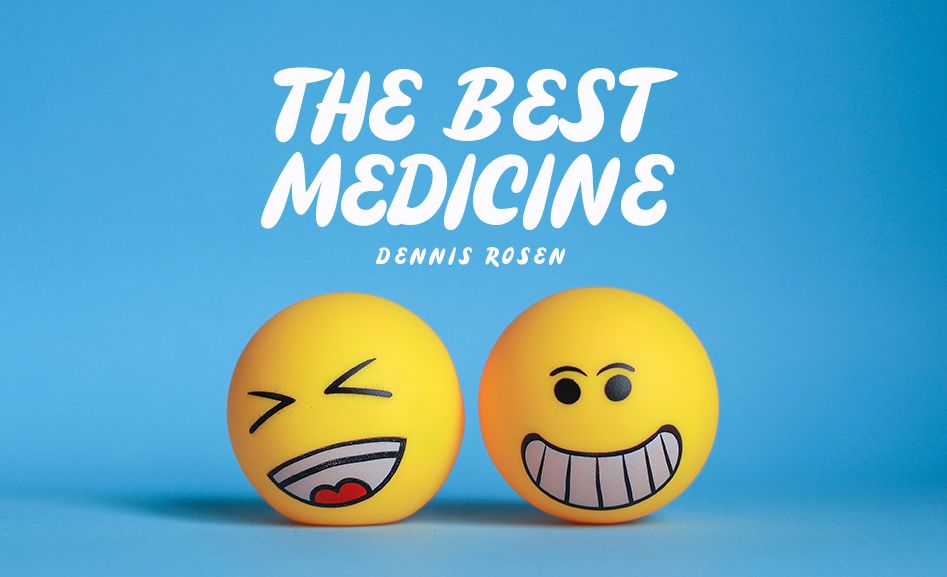
The Eating Escalator
Eating results in either increased holiness or increased spiritual defilement. There is no middle. It’s like being on the escalator- either you’re moving up or down...

What happens spiritually when we eat out of lust, or eat too much or too quickly? We actually connect to the Other Side and get blasted with a short circuit. It’s like sticking your finger in the electric socket. Sure, there is electricity available, and if it is properly harnessed, we can enjoy light and other conveniences from that electricity. However, if we connect to unbalanced energy, we do not have the vessel to contain all of that free-flowing light; therefore we experience a short circuit.
What are the physical effects of a spiritual short circuit? How long do you want this article to be?! Well, Rebbe Nachman attributes all disease to improper eating. Even cancer is preventable and reversible through proper eating, according to Rav Brody. Diabetes, high blood pressure, even arthritis can all be traced back to improper eating. The Gemara also states that a person who eats out of lust will bring harsh judgements, come to humiliation, and eventually come to poverty as well. Why do we get such a harsh consequence? “So what’s  the big deal if I eat that third slice of pizza?” you ask. By doing so, you are strengthening the influence of the Other Side and planting yourself deeper in Its trenches. Eating results in either increased holiness or increased spiritual defilement. There is no middle. It’s like being on the escalator- either you’re moving up or down, but there’s no standing still. “If you want to get healthy,” says Rav Brody, “cut out all of the refined sugars, flour, and soda. Instead, eat lots of fruits and vegetables, and drink plenty of fresh mineral water.”
the big deal if I eat that third slice of pizza?” you ask. By doing so, you are strengthening the influence of the Other Side and planting yourself deeper in Its trenches. Eating results in either increased holiness or increased spiritual defilement. There is no middle. It’s like being on the escalator- either you’re moving up or down, but there’s no standing still. “If you want to get healthy,” says Rav Brody, “cut out all of the refined sugars, flour, and soda. Instead, eat lots of fruits and vegetables, and drink plenty of fresh mineral water.”
Rebbe Nachman also gives a profound insight as to how eating just the right amount is of critical importance. He reveals the profound spiritual dynamic between food and us. This information is based on Rebbe Nachman’s Wisdom #143 and Likutey Moharan 1, 257. When a person eats, his food actually draws its “spiritual vitality” from that person’s appetite. The appetite is considered to be a spiritual force. When we eat because we need energy, we satisfy our appetite. As our appetite gets satisfied, its energy gets transferred to the food. The food actually gets its energy from our appetite! Once it draws the energy it needs, it is then able to give us the energy we need. It is as if the appetite brings to life the life-giving properties of the food! When we eat properly, we are forming a spiritual partnership with the food, in order to nourish the body and consequently the soul. Wow, what an amazing concept! As we can see, there is a very fine balance between eating to promote health and eating to destroy health. What happens with all that extra food that we eat, aside from the fact that it may migrate to other parts of our bodies? Once the food has drawn all of its vitality from your appetite, when there is no more appetite left, the food will draw its vitality from you! This is the spiritual reason why over-eating leads to all types of health issues! For the first time, I can finally understand why we feel sluggish after over-eating. Not only has the food depleted our physical energy, but it has also drained us of our spiritual energy.
An important note for all mothers, especially those Jewish “I better not see any food left on that plate, mister!” mothers: don’t force your children to eat more than they want to. As a mother, I suffer from tremendous self-imposed Jewish guilt if my kids haven’t been served an 8-course meal each night. Okay, maybe I’m exaggerating a bit. My point is that if I make dinner such a big deal, or try to pressure them to eat more than they need to, what am I doing to them psychologically? What kind of connection am I creating for them with food? Some might say that kids like this grow up not only wanting to eat more than they need to, but they might turn to food as an emotional crutch. How many people in our society do that?
Way too many. Dear mothers, if you’re about to get into a battle royale over how much your kid ate or didn’t eat, please save yourself the headache. You might be doing more harm than good. Kids have a perfectly calibrated sensor in their brains to tell them when to stop eating. This is scientifically proven. The problem is that at some point, they are pushed by their well-meaning parents to override this sensor. By the time they are adults, the sensor is severely out of alignment or non-functional. Darling mothers with the bottomless bowls of matzah ball soup, please take Rebbe Nachman’s advice and ease up on that third or fourth helping. Your health and the health of your families depend on it! If you really want to help your children eat in holiness, you can begin to teach them to say the proper blessings before and after they eat. Not only are you helping them create a connection with God, but you are also cultivating their sense of gratitude and emuna as you help them see that everything comes from Hashem.
By saying their blessings, they are getting into the fantastic habit of thanking Hashem for every little thing. What a great way to get them on the path to strong emuna!
This is a hard article to digest, I know. (Sorry, I couldn’t resist!) But this should show us how much we are really slaves to our physical desires. However, eating properly is one of the simplest ways we can progress spiritually and strengthen our connection with Hashem. It is very freeing to not be a slave to food, not to mention it’s a lot less expensive! As we can see, kosher eating is above and beyond our westernized perception of food. If we can learn and internalize the benefits of proper eating, we are guaranteed to see improvements in every level of our lives, from our health to our relationships with others, and especially our relationship with The Creator.












4/15/2011
mothers verus parents Lots of great points, just a little upsetting how you addressed mothers rather than parents. fathers have responsibilities as well — including resposibilities for nourishing. and if children grow up with unhealthy messages about food, it's a little unfair to put all that blame on the mother. fathers in this scenario get to avoid responsibility AND avoid blame and accountability. not nice, not fair.
4/15/2011
Lots of great points, just a little upsetting how you addressed mothers rather than parents. fathers have responsibilities as well — including resposibilities for nourishing. and if children grow up with unhealthy messages about food, it's a little unfair to put all that blame on the mother. fathers in this scenario get to avoid responsibility AND avoid blame and accountability. not nice, not fair.